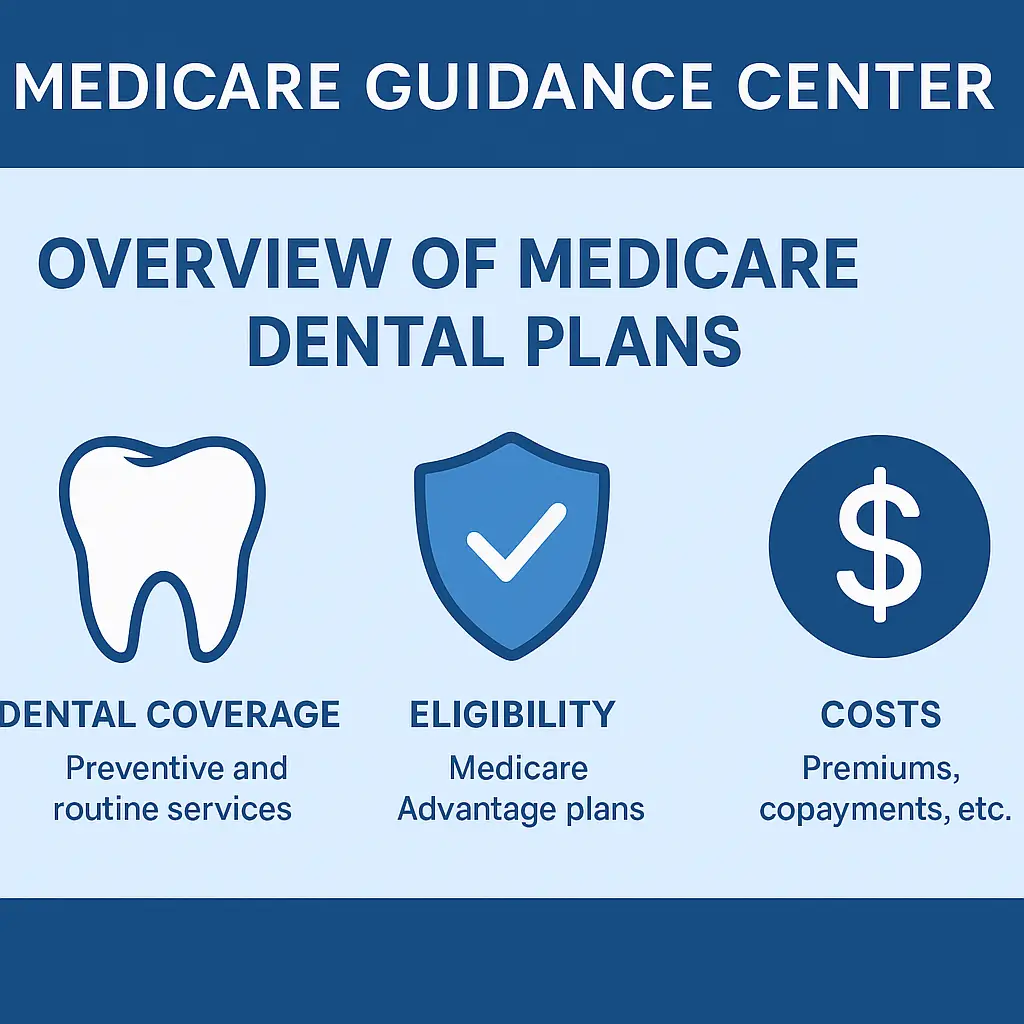Home » Medicare Dental Plans
Medicare Dental Plans: What You Need to Know
Many people are surprised to learn that Medicare dental plans are not included in Original Medicare coverage. If you’re approaching age 65 or already enrolled in Medicare, understanding your dental options is essential to maintaining both your health and your budget.

Does Medicare Cover Dental Services?
Original Medicare—Part A (hospital insurance) and Part B (medical insurance)—does not include routine dental care. This means no coverage for cleanings, fillings, extractions, dentures, or dental exams. However, Medicare may cover dental procedures if they are part of a medically necessary treatment, such as:
Jaw reconstruction after an injury
Oral exams required before kidney transplant or heart valve replacement
Tooth extractions before radiation treatment for jaw-related cancers
But these exceptions are rare. That’s why many beneficiaries explore Medicare dental plans through other options.
Medicare Advantage Plans with Dental Coverage
The most common way to get dental benefits through Medicare is by enrolling in a Medicare Advantage Plan (Part C). These are plans offered by private insurance companies approved by Medicare, and many of them include optional dental benefits.
What Dental Services Are Typically Included?
Medicare Advantage dental plans vary, but common benefits may include:
Routine exams and cleanings
X-rays
Fillings and extractions
Crowns, root canals, and dentures
Periodontal care
Coverage limits and provider networks differ by plan, so it’s important to compare carefully.
Other Options for Dental Coverage with Medicare
If you have Original Medicare and not a Medicare Advantage Plan, you still have several alternatives for dental insurance for seniors on Medicare:
1. Standalone Dental Insurance Plans
Private insurers offer standalone dental plans that can be purchased alongside Medicare. These plans often come with monthly premiums and varying levels of coverage.
2. Dental Discount Plans
A dental discount plan is not insurance, but it offers reduced rates with participating dentists. You pay an annual fee and get access to lower costs on services.
3. Medicaid and Dual Eligibility
If you qualify for both Medicare and Medicaid, you may be eligible for expanded dental services through your state’s Medicaid program.
How to Choose the Right Plan
When comparing Medicare dental coverage options, consider these key factors:
Monthly premiums – Is it affordable within your budget?
Annual maximums – How much will the plan pay each year?
Network dentists – Are your preferred providers included?
Covered services – Does the plan cover what you need?
It’s smart to speak with a licensed Medicare advisor who understands your personal situation and can guide you through the choices.
Why Dental Health Matters in Retirement
Oral health is closely linked to your overall health. Gum disease has been associated with heart conditions, diabetes, and respiratory infections. Regular dental care helps you stay healthy, avoid costly procedures later, and keep your quality of life high.
Medicare Guidance Center Can Help
At Medicare Guidance Center, we specialize in helping you find Medicare dental plans that match your needs. Whether you’re considering a Medicare Advantage Plan or a standalone dental policy, our team will guide you through your options and help you make an informed decision.
Common Questions About Medicare Dental Plans
Does Medicare pay for dentures?
Original Medicare does not cover dentures, but some Medicare Advantage Plans do.
Are dental cleanings covered by Medicare?
Only Medicare Advantage Plans with dental coverage may offer routine cleanings.
Can I add dental coverage to my Medicare plan?
Yes, through a Medicare Advantage Plan or a separate private dental insurance plan.
How do I find a dental plan that works with Medicare?
Talk to a licensed Medicare agent or visit Medicare Guidance Center for help comparing plans.
Dental Plan Comparison
Thousands of Satisfied Customers

